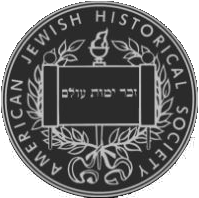Fighting Fascism: A Symposium on Jewish Responses From the Interwar Period to the Present Day
Co-hosted by the American Jewish Historical Society and the Center for Jewish History.
This program took place on October 15th, 2023, at the Center for Jewish History and online via YouTube.
Generously sponsored by Leonard L. Milberg with additional support from The Achelis & Bodman Foundation
Program Overview
Fighting Fascism marks the 90th anniversary of the Nazi seizure of power in Germany by examining how Jews in Europe and the United States responded to fascism from the 1920s up to the present day. Organized in partnership with the American Jewish Historical Society, the symposium is the second event sponsored by CJH’s new Jewish Public History Forum, which seeks to bring new and diverse audiences to the Center by organizing public programs addressing historical topics of contemporary relevance.
Session Descriptions
Opening Panel- “This is the Way the World Ends”: What is Fascism?
As immortalized in the concluding line of T. S. Eliot’s 1925 poem, “The Hollow Men,” the idea that “the world ends not with a bang but a whimper” has long evoked the fractured world that produced fascism. But what is fascism? Our opening session tackles this vexing question as a springboard for the rest of the day’s events. Panelists will discuss the differences between fascism and other rightwing movements, such as Nazism and conservative authoritarianism, by exploring their ideological and historical origins from the interwar period up to the present. Panelists will further discuss the important role of antisemitism in classical and contemporary forms of fascism.
Panelists:
Ruth Ben-Ghiat, New York University
Federico Finchelstein, The New School for Social Research
Helmut Walser Smith, Vanderbilt University
Moderator: Gavriel Rosenfeld, Center for Jewish History and Fairfield University
Panel Two – “The Empty Stomach of Germany”: Fighting Fascism in Europe
“I do not enjoy Herr Hitler’s acquaintance,” said Albert Einstein in response to questions about the Nazi leader’s sudden rise to political prominence in 1930. “He is living on the empty stomach of Germany. As soon as conditions improve, “ Einstein posited, “he will no longer be important.” These words would come back to haunt Einstein as Nazism, fascism, and other rightwing movements spread across Europe. Panelists will discuss how European Jews initially responded to these movements and examine how those responses evolved as Europe descended into war in 1939.
Panelists:
Michael Brenner, American University
Shira Klein, Chapman University
Kenneth Moss, University of Chicago
Moderator: Jeffrey Veidlinger, University of Michigan
Lunchtime Session – Abraham Lincoln Brigade Archives- Keeping Alive the Memory of U.S. Antifascism
Featured during the lunchtime break, this special session is produced thanks to The Abraham Lincoln Brigade Archives.
Panel Three – “Star-Spangled Fascists”: Fighting Fascism in the U. S.
In a 1939 Saturday Evening Post article entitled “Star-Spangled Fascists,” journalist Stanley High wrote: “One of the ominous distinctions of American fascism is that, without benefit of a Mussolini, a Hitler or even an Oswald Mosley, it continues to prosper and spread.” As fascism spread across Europe, it was also embraced by a small but vocal number of Americans, including high profile figures in the worlds of business and politics. This panel will examine the threat posed by fascist groups in the United States, such as the German American Bund, the Christian Front, and the Silver Shirts, and will survey the responses offered by Jewish Americans, whether in the form of political activism, espionage, or journalism.
Panelists:
Anna Duensing, University of Virginia
Jeffrey Gurock, Yeshiva University
Steven Ross, University of Southern California
Moderator: Marc Dollinger, San Francisco State University
Panel Four – “The Language of the Good”: Fighting Fascism in Culture
“He could hardly read or write,” wrote Primo Levi in his memoir If This is a Man: Survival in Auschwitz, “but his heart spoke the language of the good.” Throughout the 1930s and in the decades that followed, the arts were essential tools in the fight against fascism. Jews were especially active in this fight, employing film, art, comic books, and other media against the fascist threat. This panel explores antifascist themes in the work of Jewish cultural figures during the interwar era and examines how this tradition continues today.
Panelists:
Samantha Baskind, Cleveland State University
Thomas Doherty, Brandeis University
Philip Eliasoph, Fairfield University
Moderator: Christopher Vials, University of Connecticut
Closing Panel – “In the Name of Humanity”: Fighting Fascism in the Postwar World
Throughout World War II and in its immediate aftermath, American Jewish leaders and antifascist groups implored Americans to help defeat what the Non-Sectarian Anti-Nazi League to Champion Human Rights called “a monstrous gang — in the name of humanity and for the preservation of all we hold dear.” As the Allied powers faced the daunting task of repairing a world ravaged by total war, neofascist movements began to sprout around the globe. Panelists will explore the fluctuating strength of fascism after 1945 by examining the reappearance of far right parties in the U. S. and Europe and exploring how Jewish and non-Jewish groups responded to them.
Panelists: Matthew Dallek, George Washington University
Kenneth Jacobson, Anti-Defamation League (ADL)
Moderator: Gemma Birnbaum, American Jewish Historical Society

